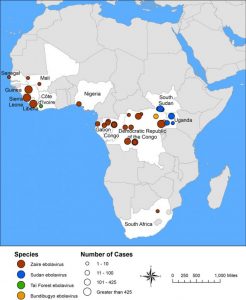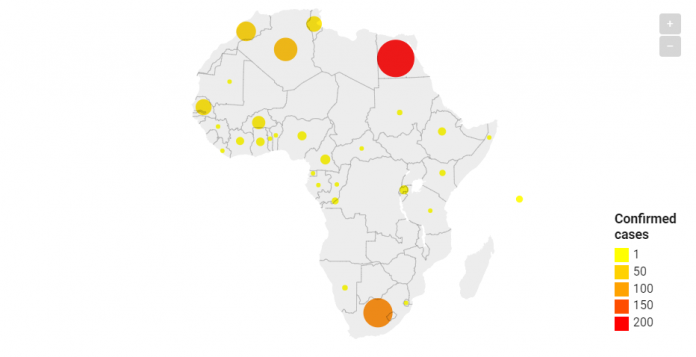 Suleiman Ahmed is a Software Engineer and writer. He is the author of the political novel, ‘Trouble in Valhalla’ and tweets from @sule365
Suleiman Ahmed is a Software Engineer and writer. He is the author of the political novel, ‘Trouble in Valhalla’ and tweets from @sule365
The Coronavirus (COVID-19) has, to put it mildly, brought the developed world to its knees. With exception to a few key role jobs, such as the police and frontline medical professionals, several other workers have been forced to work from home until further notice. With the ruthlessness of capitalism once again in action, several job loses have already been recorded, especially within the hospitality sector.
With more than 80,000 positive cases and the death toll surpassing 8,200, Italy has been the hardest hit so far in Europe. Followed closely by Spain, and the UK, France and Germany, with tens of thousands of recorded cases between them.
Further out in the western hemisphere, the U.S. has now exceeded 80,000 recorded cases and nearly 1,200 deaths. In the Muslim majority world, Iran has been affected the most, with more than 29,000 cases and more than 2,200 deaths, followed by Indonesia and Iraq, with 78 and 36 deaths, respectively.
China, the origin of the virus, has recorded nearly 82,000 cases and more than 3,200 deaths. According to World Health Organisation (WHO), as at the time of writing, 198 countries have been affected by COVID-19, with 526,000 recorded cases and 23,720 deaths.
Is Africa immune?
Subscribe to our newsletter and stay updated on the latest news and updates from around the Muslim world!
In all of this darkness, panic and sorrow, to the amazement of public health experts and the rest of the world, Sub-Saharan Africa has been the least affected, so far, with very few recorded cases. A lot of theories have surfaced, attempting to explain why this is the case. The most popular one has been attributed the hot climate of the region. This “hot climate” theory states that the virus thrives more in colder climates than it does in hotter ones, therefore, since Sub-Saharan Africa is relatively hotter, the virus has had very limited chances of survival out there.
Another theory is that African healthcare workers, especially those in Nigeria, probably have better first-hand experience in dealing with disease outbreaks of this nature compared to their European counterparts.
Mathias Altmann, an epidemiologist at the University of Bordeaux and an expert in infectious diseases in developing countries, told FRANCE 24 in February that Nigeria is at low risk of having the COVID-19 outbreak but also the best placed to deal with it in all of Africa.
Mr Altmann said: “In a continent that has had its share of epidemics and whose countries, therefore, have a huge knowledge of the field and real competence to react to this kind of situation, Nigeria is in a very good position to confront the arrival of Covid-19.
“The country’s CDC (Center for Disease Control) is responsible for the entire region of West and Central Africa and is located in Abuja, the capital of Nigeria, which means that their organisational standards in health matters is very high.”

A third theory posited (by a minority of people) is that Africans are immune to the virus. This theory has, however, been disputed as reports of people of African origin also contracting the virus has come to light, with the most notable being the British–Sierra Leonean actor, Idris Elba. The actor himself has come forward to refute this claim. I also think the idea that “the virus doesn’t affect black people” or that “people in Africa are more immune to the disease” is irresponsible and needs to stop, as it is putting more people at risk of actually contracting the virus.
With that being said, the fact still remains that Africa has been the least affected continent, so far, and the real question remains – why?
I don’t think anyone has a conclusive answer. However, the reason the virus is not spreading in Sub-Saharan Africa should not be our major concern. The major concern for me is, what will Africa do if COVID-19 becomes widespread in the continent as we have witnessed in Europe? In other words, is Africa prepared to deal with this pandemic in the long term?
The long game
During the Ebola outbreak, it took Nigerian authorities only three months to eradicate the deadly virus in the country, which earned it much praise from the WHO and rest of the world. Although, Nigeria performed really well in 2014 during the Ebola outbreak, one could argue that Africa’s largest economy received global assistance in the form of funding and volunteers. Would the continent receive the same level of help or attention from the western world as it did in 2014? Most likely not.

As we are already aware, there wouldn’t be enough test kits, hospital beds, respirators and medical staff to control it.
Africa’s years of bad healthcare policies will be ruthlessly exposed and people are going to suffer if this happens. Also, it has reached a point where most countries in the world have now been affected by COVID-19 in the space of three months, therefore poorer and weaker economies will inevitably suffer the most, and majority of African countries fall in that category.
This window of opportunity or delay – which is an unexplained miracle – is the best time for the African Union to decide on proactive measures to ensure that exposure to COVID-19 is contained as much as possible.
Unlike the time of Ebola where the international community provided some help to the affected countries, this time round, things would be very different, as no one would be so charitable to Africa due to those respective countries fighting the same monster domestically. Therefore, if there’s ever a time for African leaders to act as responsible adults who can take care of their own affairs without having to run to Daddy America, Mummy France or Grand Pa China, that time is now.






















